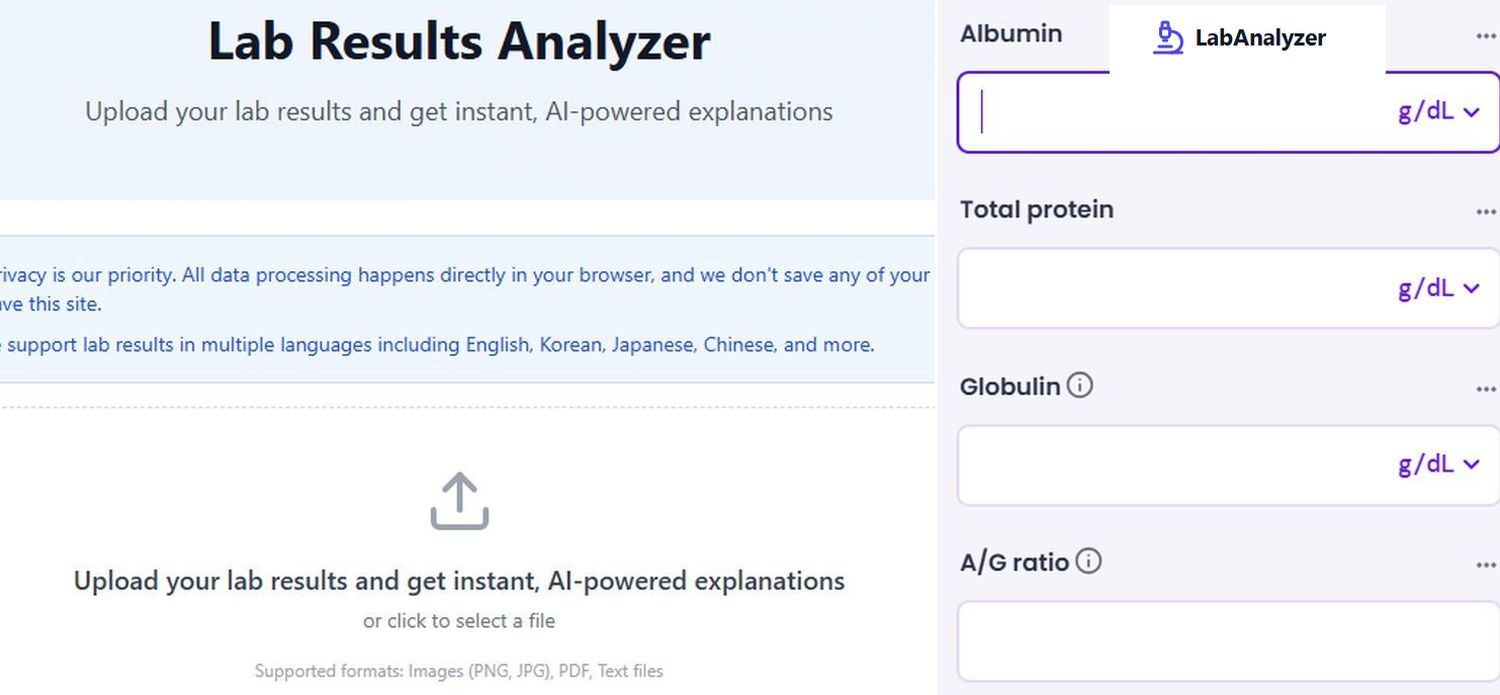
AG Ratio Calculator: Instantly Interpret Your Result
Use our AG ratio calculator to understand your albumin/globulin lab result instantly. Includes interpretation and guidance.

Use our AG ratio calculator to understand your albumin/globulin lab result instantly. Includes interpretation and guidance.

This comprehensive guide explains the standard ag ratio lab test normal range, factors that influence these values, and what abnormal results might indicate for your health.

Wondering what an AG ratio of 0.8 means? Learn the causes, symptoms, and next steps if your albumin/globulin ratio is low.
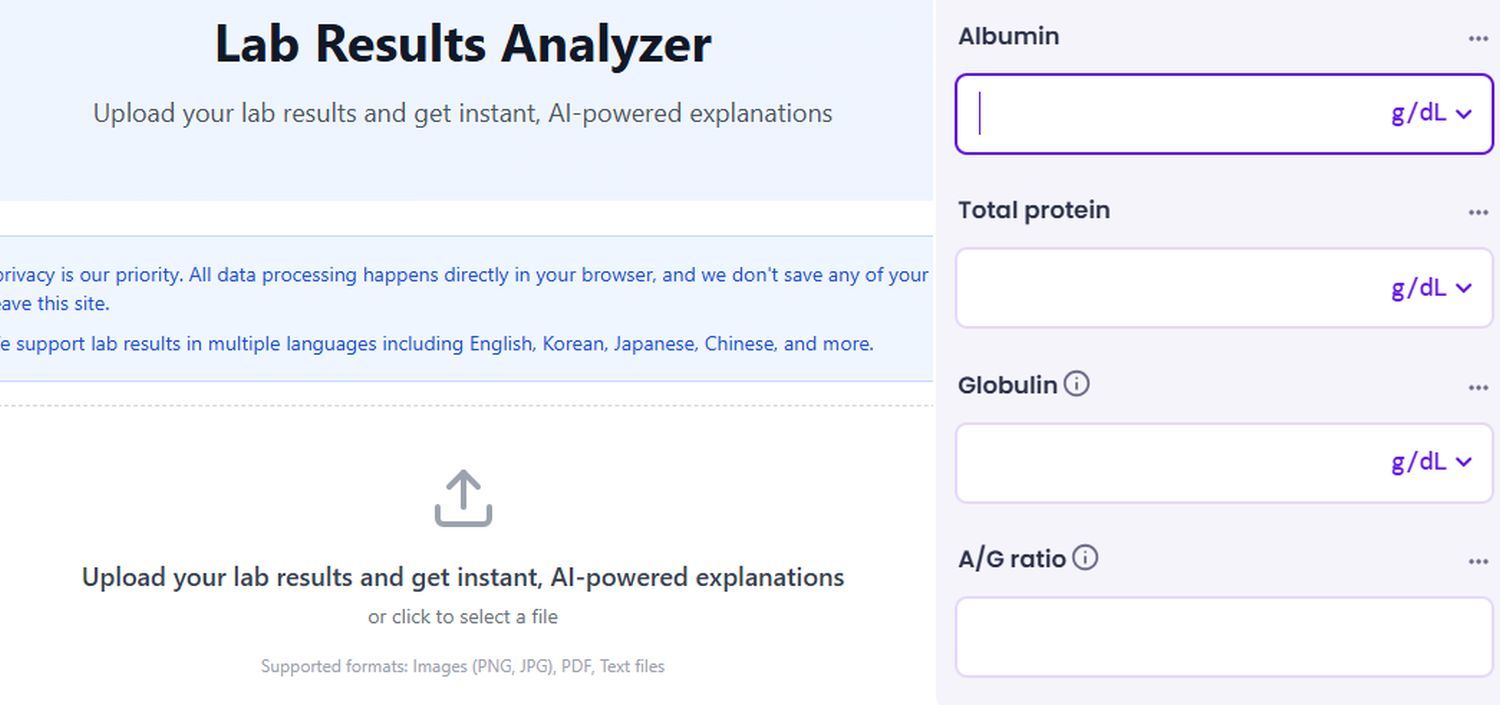
Learn how to calculate your A/G ratio with this step-by-step guide. Understand the formula, required values, common errors, and how to interpret your results.

This complete guide provides medical-grade interpretation of blood pressure readings, including comprehensive age-specific charts, detailed risk stratification, and professional-level analysis that goes far beyond basic blood pressure categories.
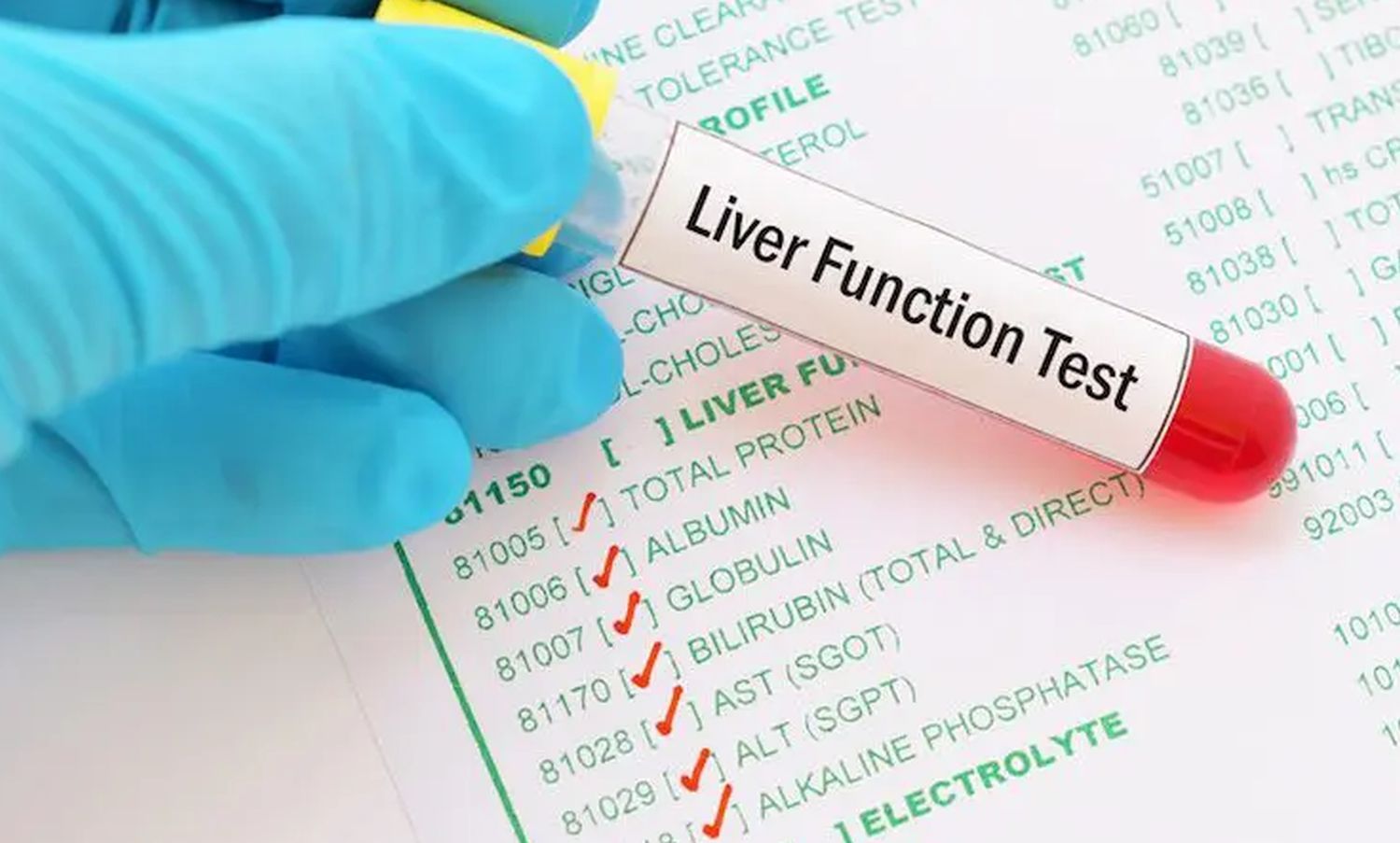
This comprehensive guide will explain each component of liver function testing and help you understand what your specific results mean for your liver health and overall well-being.
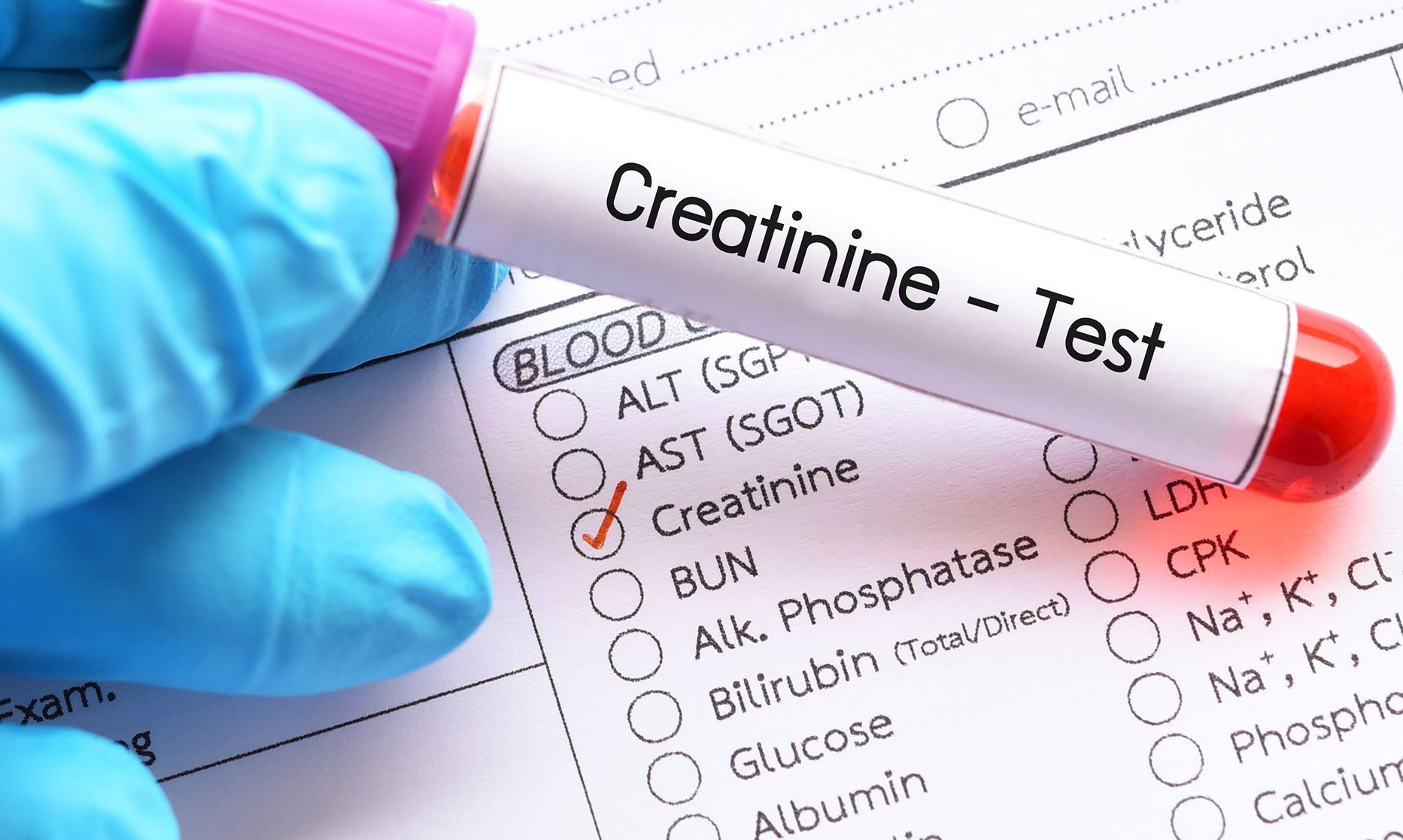
This guide will explain every component of kidney function testing and help you understand what your specific results mean for your health.
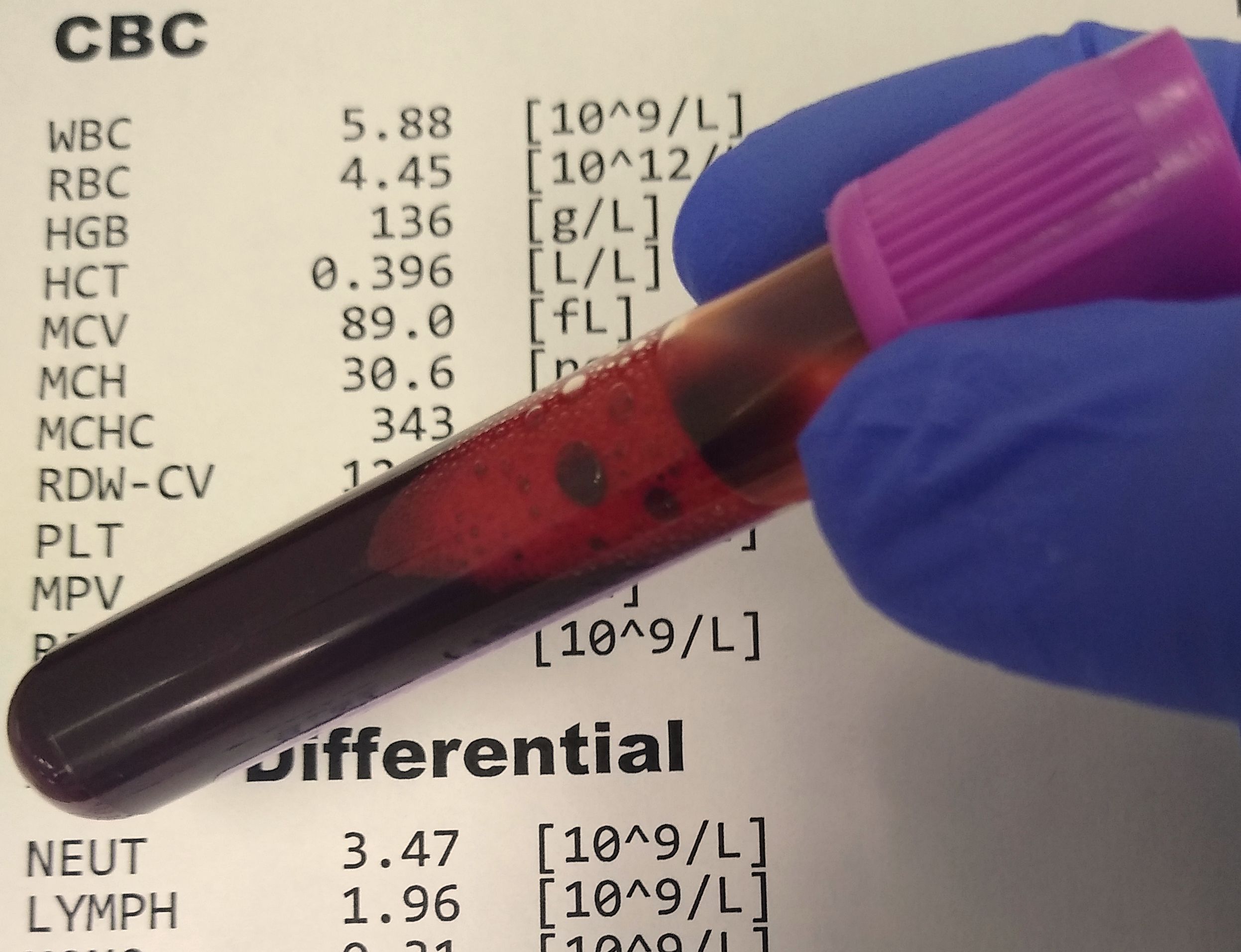
This guide will decode every component of your complete blood count and help you understand what your results reveal about your health.
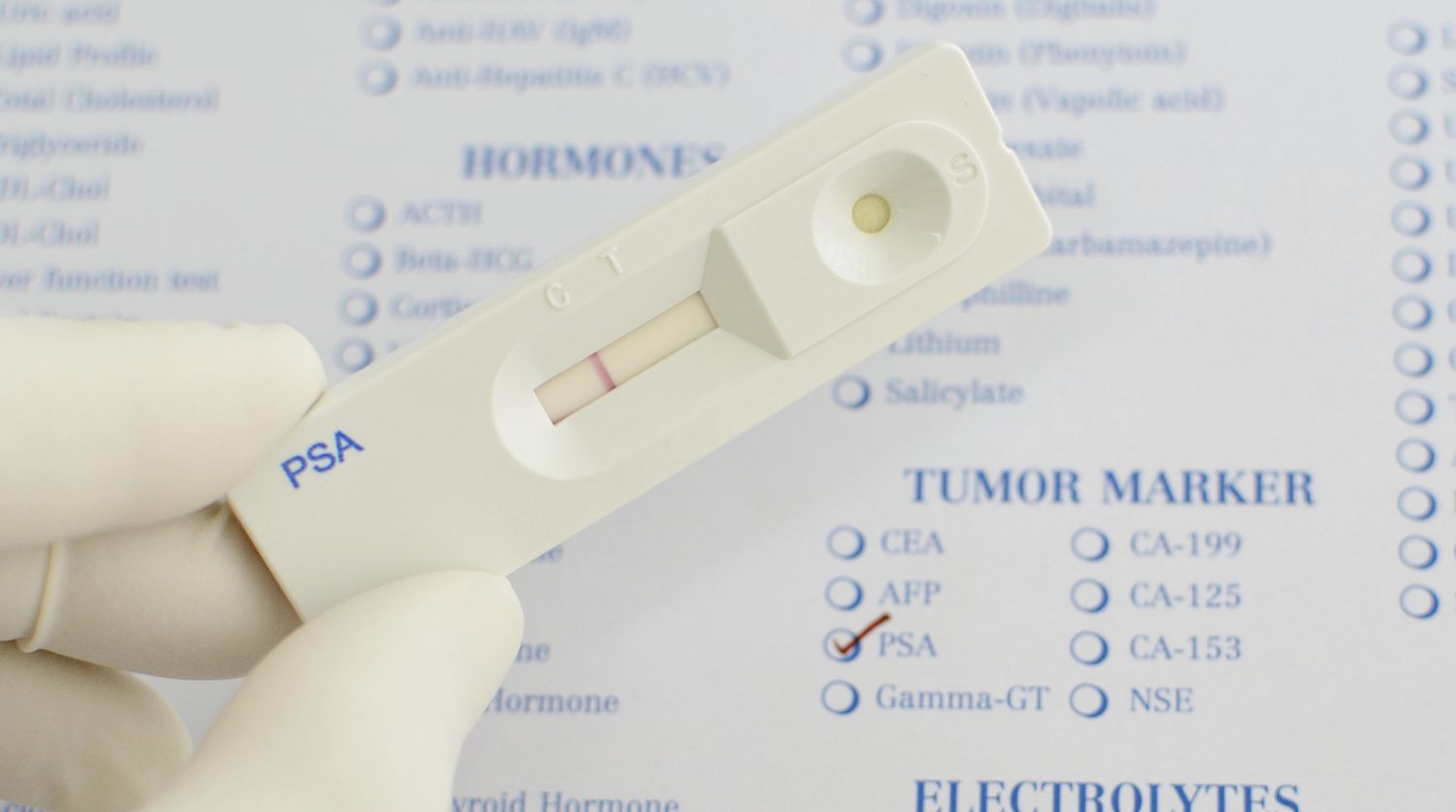
This guide will help you understand what your PSA level means, when to be concerned, and what steps to consider based on your specific results.
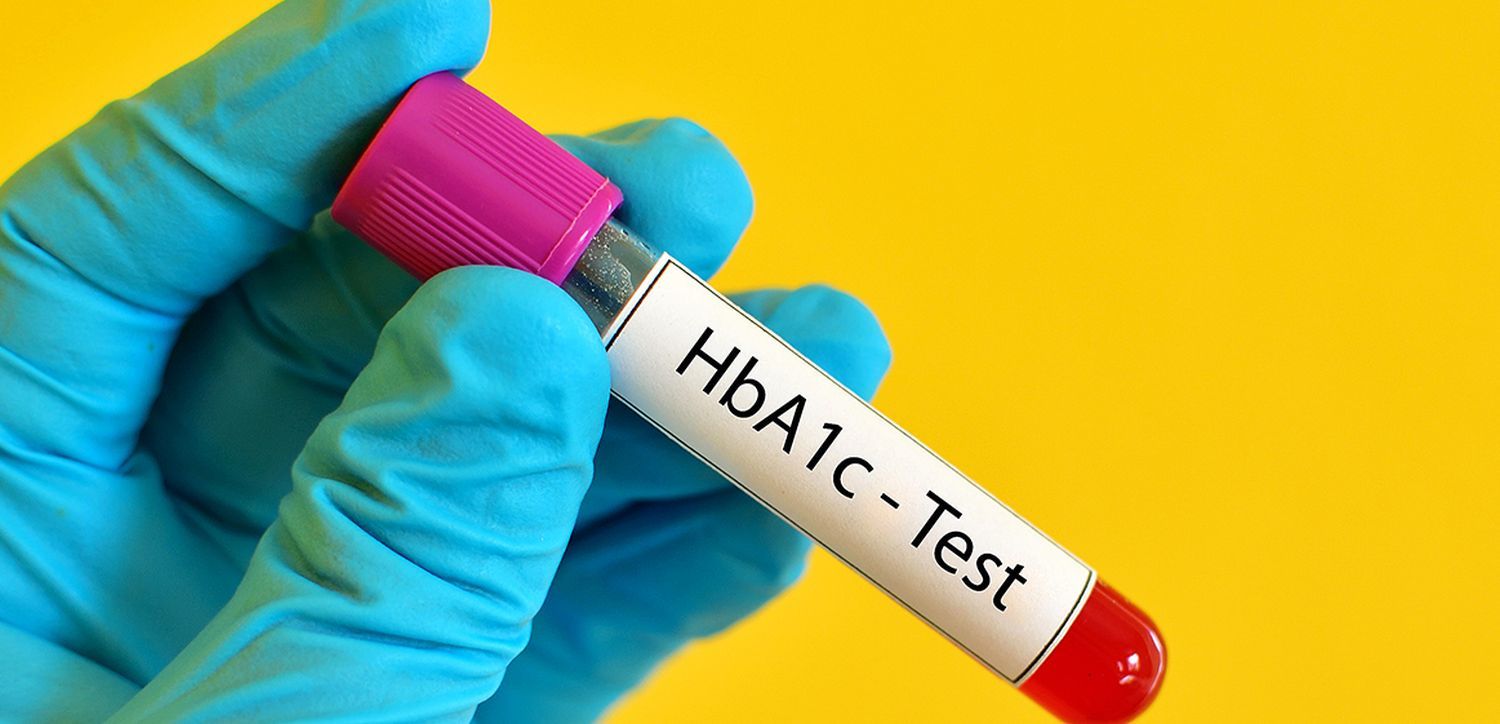
This comprehensive guide will help you understand exactly what your A1C result means, how it compares to target ranges for your specific situation, and what steps you should consider based on your number.
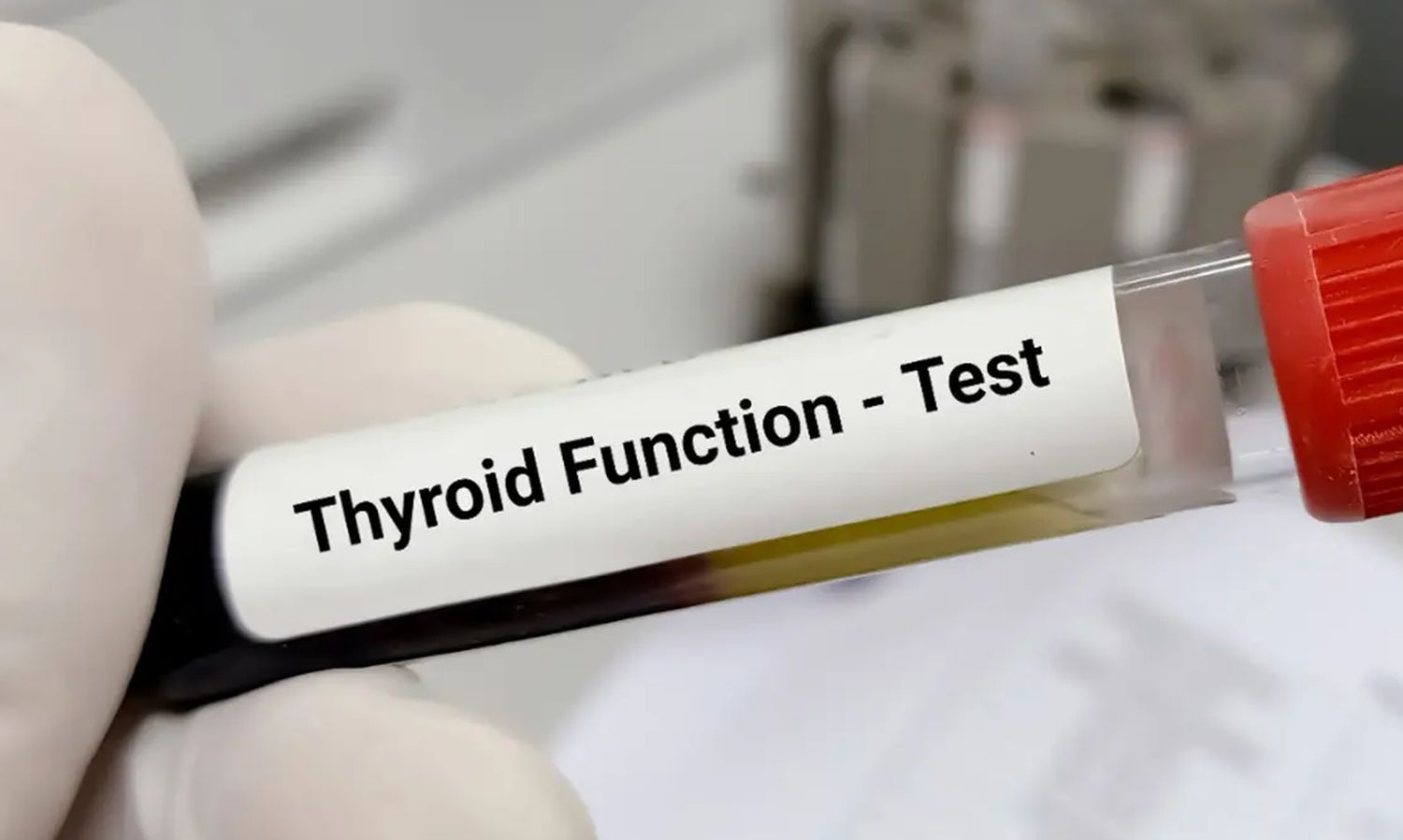
Your thyroid affects virtually every cell in your body, so understanding what your specific numbers mean isn't just helpful, it's essential for your overall health and well-being.
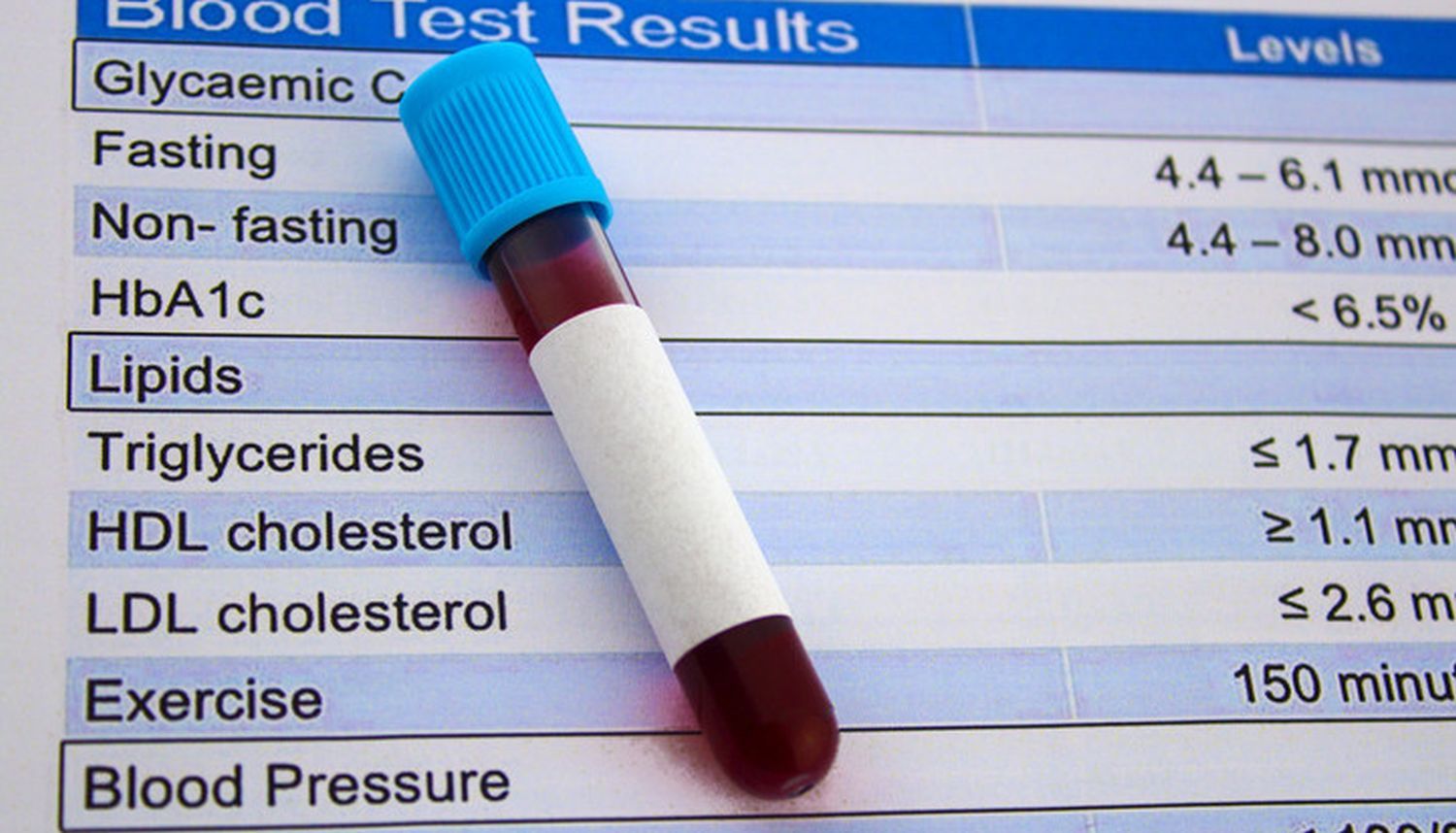
Your body needs cholesterol for cell structure, hormone production, and energy use. Your cholesterol test shows two main types: HDL (High-Density Lipoprotein) and LDL (Low-Density Lipoprotein).